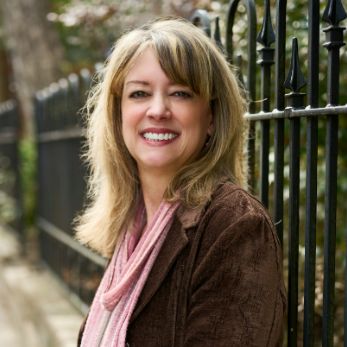What Is Pastoral Counseling?
Pastoral counseling is a specialized form of mental health care that combines psychological principles with spiritual and religious perspectives. Pastoral counselors integrate psychology and spirituality in a rigorous, informed, and clinically responsible way, offering a holistic approach to healing that addresses both emotional and spiritual concerns.
Unlike traditional therapy that focuses solely on psychological factors, pastoral counseling acknowledges the role of faith, spirituality, and religious beliefs in mental health and recovery. This approach recognizes that for many individuals, spiritual well-being is inseparable from overall mental health.
Types of Pastoral Care Professionals
Christian Counselor
A christian counselor is a mental health professional who incorporates Christian principles, biblical teachings, and faith-based perspectives into their therapeutic practice. These counselors typically hold advanced degrees in counseling or psychology and have received specialized training in integrating faith with mental health treatment. They serve clients who want their therapeutic journey to align with Christian values and beliefs.
Christian counselors may work in private practice, church settings, or faith-based counseling centers. They address a wide range of mental health concerns, including anxiety, depression, relationship issues, grief, and spiritual struggles, all while maintaining a Christian worldview in their approach to treatment.
Spiritual Counselor Near Me
When searching for a "spiritual counselor near me," you're looking for mental health professionals who integrate spiritual practices and beliefs into their therapeutic work, regardless of specific religious affiliation. These counselors may work with clients from various faith traditions or those exploring spirituality without adhering to organized religion.
Spiritual counselors often incorporate meditation, prayer, mindfulness practices, and exploration of meaning and purpose into their sessions. They understand that spiritual distress can contribute to mental health challenges and that spiritual growth can be a powerful component of healing.
Chaplain Counselor
A chaplain counselor is typically a ordained minister or religious leader who provides both spiritual care and counseling services. Chaplains are commonly found in hospitals, military settings, universities, and correctional facilities, where they offer support to individuals facing crisis situations, trauma, or significant life transitions.
Chaplain counselors receive specialized training in crisis intervention, grief counseling, and providing spiritual support in institutional settings. They serve people of all faiths and backgrounds, adapting their approach to meet the spiritual and emotional needs of diverse populations.
Pastoral Counseling Services
Scope of Services
Pastoral counseling services encompass a wide range of mental health and spiritual support options. These services typically include:
Individual Counseling: One-on-one sessions addressing personal struggles, mental health concerns, and spiritual questions. Counselors help clients explore how their faith intersects with their psychological well-being.
Couples and Marriage Counseling: Faith-based relationship counseling that incorporates spiritual principles and religious teachings about marriage and partnership. These services help couples strengthen their relationship while honoring their shared faith values.
Family Counseling: Therapeutic support for families dealing with conflict, communication issues, or major life transitions, all while considering the family's spiritual foundation and religious practices.
Group Counseling: Support groups that combine therapeutic principles with spiritual exploration, allowing participants to share experiences and grow together in faith and healing.
Crisis Intervention: Emergency support for individuals experiencing acute mental health crises, incorporating both professional clinical skills and spiritual comfort.
Grief and Loss Support: Specialized counseling for those mourning the loss of loved ones, addressing both emotional pain and spiritual questions about death, afterlife, and meaning.
Treatment Approaches
Pastoral counseling combines cognitive-behavioral theory, biblical teaching, and leading mental health research, creating an integrated approach to treatment. Common therapeutic methods used in pastoral counseling include:
- Cognitive-behavioral therapy with spiritual integration
- Narrative therapy incorporating faith stories and religious texts
- Solution-focused therapy grounded in spiritual strengths
- Mindfulness and meditation practices rooted in religious tradition
- Prayer and spiritual disciplines as therapeutic tools
Benefits of Pastoral Counseling
The benefits of pastoral counseling extend beyond traditional therapeutic outcomes by addressing the whole person – mind, body, and spirit. Research and clinical experience have identified several key advantages:
Holistic Healing Approach
Pastoral counseling addresses multiple dimensions of human experience simultaneously. Rather than treating mental health concerns in isolation, this approach recognizes the interconnectedness of psychological, spiritual, and social well-being. Clients often report feeling more completely understood and supported when their faith and spiritual concerns are acknowledged and integrated into treatment.
Cultural and Values Alignment
For individuals with strong religious or spiritual beliefs, pastoral counseling provides a safe space where their values are respected and incorporated into the healing process. This alignment can reduce the internal conflict that sometimes arises when secular therapy approaches conflict with deeply held beliefs.
Enhanced Coping Resources
Pastoral counseling helps clients develop and strengthen spiritual coping mechanisms, such as prayer, meditation, religious community support, and faith-based meaning-making. These resources can provide ongoing support long after formal counseling ends.
Many pastoral counselors help clients strengthen their connections to faith communities, which can provide ongoing social support, practical assistance, and spiritual encouragement. This community aspect can be particularly valuable for individuals struggling with isolation or lack of social support.
Meaning and Purpose Exploration
Spiritual struggles often involve questions of meaning, purpose, and life direction. Pastoral counselors are specifically trained to help clients explore these existential concerns within the context of their faith tradition, potentially leading to greater life satisfaction and direction.
Licensing and Professional Standards
State-by-State Variations
The licensing requirements for pastoral counselors vary significantly across states, creating important considerations for both providers and clients. In some states, pastors may provide spiritual counseling without holding a professional license as long as they do not engage in activities reserved for licensed counselors, such as diagnosing mental health disorders. However, in other states, pastors may be required to hold a professional license.
Clergy do not need state licensure to conduct pastoral counseling within church settings, but this exemption has specific limitations and varies by jurisdiction. Pastoral counselors do not have to be licensed due to their clergy exemption, but these requirements vary from state to state and pastoral counselors should research requirements carefully before taking on clients.
Professional Education Requirements
Most states that regulate pastoral counseling require practitioners to complete specific educational requirements. The Master of Arts degree in pastoral mental health counseling is typically a 60-credit program that provides the professional education requirements needed for licensure as a mental health counselor. It's common to require 1,000 hours or more of supervised clinical experience.
Dual Credentials
Many pastoral counselors hold both religious credentials (such as ordination) and professional mental health licenses (such as Licensed Professional Counselor or Licensed Clinical Social Worker). This dual credentialing ensures they can provide comprehensive services while meeting professional standards and legal requirements.
Finding the Right Pastoral Counselor
Questions to Ask Potential Counselors
When searching for pastoral counseling services, consider asking these important questions:
- What are your educational credentials and professional licenses?
- What is your theological background and approach to integrating faith with therapy?
- Do you have experience treating my specific concerns or population?
- How do you handle situations where psychological and spiritual guidance might conflict?
- What is your policy regarding confidentiality, especially in relation to church leadership?
- Do you accept insurance, and what are your fee structures?
Red Flags to Avoid
Be cautious of pastoral counselors who:
- Claim to provide services beyond their training or credentials
- Refuse to discuss their qualifications or approach
- Pressure you to abandon other forms of treatment
- Violate confidentiality by sharing information with religious leaders without consent
- Use spiritual concepts to shame or manipulate clients
Finding Qualified Providers
Start your search by:
- Contacting your state's professional counseling board for licensed providers
- Asking for referrals from trusted religious leaders or healthcare providers
- Checking with professional organizations like the American Association of Pastoral Counselors
- Researching providers' credentials and reviews online
- Verifying licenses through state regulatory websites
Insurance and Cost Considerations
Insurance Coverage
Insurance coverage for pastoral counseling varies depending on the provider's credentials and the specific services offered. Licensed mental health professionals who provide pastoral counseling are typically covered by insurance plans, while unlicensed clergy providing spiritual counseling may not be covered.
Before beginning treatment, verify coverage with both your insurance provider and the counselor's office. Some providers offer sliding scale fees or payment plans to make services more accessible.
Out-of-Pocket Costs
When insurance doesn't cover pastoral counseling, costs can vary widely based on location, provider credentials, and service type. Many faith-based counseling centers offer reduced-rate services or sliding scale fees based on income.













